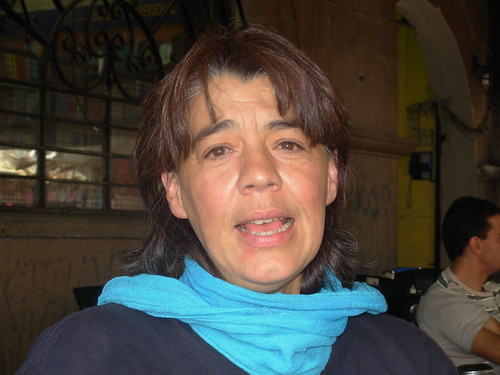latin america
Fidel Castro’s declarations of resistance

Review by Alex Miller
The Declarations of Havana,
by Fidel Castro, with an introduction by Tariq Ali,
Verso, 2008, 138 pages
May 22, 2009 -- As Cuba celebrates the 50th anniversary of the revolution that overthrew the US-backed dictator Fulgencio Batista in 1959, it is fitting that three of the most famous documents relating to the struggle against Batista and the early days of the revolution are published together in a single volume. The Declarations of Havana is part of Verso’s new “revolutions” series.
By reading the three documents back-to-back, one is able to trace the development of the Cuban Revolution from its nationalist-democratic beginnings to its socialist conclusion.
On July 26, 1953, a 26-year-old lawyer named Fidel Castro — along with his younger brother Raul — led an armed attack on the Moncada barracks in Santiago de Cuba, hoping to spark an uprising that would remove the hated Batista from power.
[This is the third in a series of regular articles. Click HERE for other articles in the series. Please return to Links regularly read the next articles in the series.]
By Marta Harnecker, translated by Federico Fuentes for Links International Journal of Socialist Renewal
1. We have previously stated that politics is the art of constructing a social and political force capable of changing the balance of forces in order to make possible tomorrow that which today appears to be impossible. But, to be able to construct a social force it is necessary for political organisations to demonstrate a great respect for grassroots movements; to contribute to their autonomous development, leaving behind all attempts at manipulation. They must take as their starting point that they aren’t the only ones with ideas and proposals and, on the contrary, grassroots movements have much to offer us, because through their daily struggles they have also learned things, discovered new paths, found solutions and invented methods which can be of great value.

By Rachel Evans
May 21, 2009 -- Coyacan, Mexico -- I interviewed Patria Jiménez in Coyacan’s normally bustling markets. The onset of the swine flu crisis had emptied the streets and enforced a stiffness into Mexico’s normally effusive greetings tradition. No kissing hello or shaking hands was encouraged. Jiménez ignored swine-flu protocol and greeted me warmly.
In 1997, Jiménez made history by being elected the first openly lesbian member of Mexico's Chamber of Deputies. Representing an alliance that included the the Workers Revolutionary Party (PRT) and the Party of the Democratic Revolution (PRD), Jiménez was also the first openly lesbian candidate to be elected in Latin America. She is standing again within a coalition, Salvemos a México (We Will Save Mexico), for the July 2009 federal elections.
Marta Harnecker: Ideas for the struggle #2 -- Convince, not impose


[This is the first in a series of regular articles. Click HERE for other articles in the series. Please return to Links regularly read the next articles in the series.]
By Marta Harnecker, translated by Federico Fuentes for Links International Journal of Socialist Renewal
1. The recent popular uprisings at the turn of the 21st century that have rocked numerous countries such as Argentina and Bolivia -- and, more generally, the history of the multiple social explosions that have occurred in Latin America and the rest of the world -- have undoubtedly demonstrated that the initiative of the masses, in and of itself, is not enough to defeat ruling regimes.
Interview with Bolivia's foreign minister: `Communitarian socialism will refound Bolivia’
Interview with Bolivia’s foreign minister David Choquehuanca by Patricia Bravo and Cris González, translated from the original article in the March 20, 2009, edition of
Mexico's Revolutionary Workers Party (PRT) statement on swine flu epidemic

Statement by the Revolutionary Workers Party (PRT)
April 30, 2009 -- The health emergency brought about by the swine flu epidemic has important political and social repercussions, in addition to consequences for public health, that need to be explained in the midst of the confusion and distrust that contradictory governmental versions generate. It is also necessary to open the way to scientific information, truth and political criticism.
Socialist feminist revival spearheaded by Venezuelan and Cuban revolutions
May 4, 2009 – There is a revival of socialist feminism in Latin America, spearheaded by the Venezuelan and Cuban revolutions.
A Green's view of Cuba: Reflections on the 50th anniversary of the revolution

By Barbara Chicherio
During January 2009 I visited Cuba over a long weekend. My stepdaughter started medical school there this past August and this was the first chance in several months for her Dad and me to see her. Visiting Rebecca was wonderful, but I was unprepared for what I encountered during the three short days spent in Cuba and how the experience would shift my perception of the global economy.
Bolivia: Rich countries must pay their `ecological debt'

Submission by Republic of Boliv
Michael Lebowitz: Venezuela's socialism of the 21st century
April 16, 2009 -- Michael Lebowitz has recently been in Australia as a featured guest of the World at a Crossroads conference, held in Sydney April 10-12, organised by the Democratic Socialist Perspective and Green Left Weekly. Lebowitz is professor emeritus of economics at Simon Fraser University in Vancouver, Canada. He is a program coordinator with the Centro International